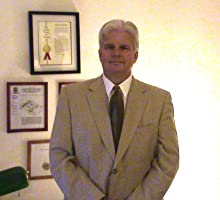Charles Pogue
With many many members of the church, it is getting more and more difficult to distinguish them from those in the denominational world, and sometimes even from those who are not religious at all. Indicators one is in such a condition are the statements they make. Whether it has to do with what they believe in doctrine, or what they believe in manner of life, the following bogus claims are often heard.
The preacher said it was okay: Peter wrote that under the old Law there were false prophets and that “there shall be false teachers among you” (2 Peter 2:1). John declared there were already false prophets in the world (1 John 4:1). The old prophet lied to the young prophet. The young prophet listened to him, and it cost him his life (1 Kings 13). The illustration of the Bereans is often made, and correctly so. Even when the apostle Paul preached to them they searched the scriptures daily to see if the things they were taught were the truth (Acts 17:11). It doesn’t matter what the preacher says. It matters what God has said!
I don’t see anything wrong with it: People don’t see anything wrong with many things the church is doing, such as creating offices in the church that the New Testament knows nothing about. Often times when it comes to activities such as so called social drinking, the claim is, “I don’t see anything wrong with it.” Diotrephes did not see anything wrong with loving the preeminence and not receiving the apostle John, but John would remember his awful mind and deeds when he came (3 John 9,10). Peter, apparently did not see anything wrong with separating from the Gentiles out of fear of the Jews, yet Paul withstood him to the face (Gal. 2:11-12). The measure of truth and error, right and wrong, is not whether an individual sees a thing as right. The standard is whatever we do in word or deed, do all in the name of the Lord, by His authority (Col. 3:17).
I was raised that way: We even hear members of the church appealing to a common argument used by those in the denominations, “That’s how I was raised.” There are many faithful members of the church today who were raised by denominational parents. If they had held on to the idea of that’s how they were raised, they would have never accepted and obeyed the truth. Some of our members live in sins their parents engaged in, because that is how they were raised. Think about this. Every single Jew on the day of Pentecost was raised to live by the law of Moses. Every Jew who was subsequently converted and of whom we have record in the book of Acts, was raised to live by the law of Moses. Before Christ came, they were bound to obeying the law to be pleasing to God, but Christ nailed that old law to the cross. Any Jew who rejected the Gospel with the argument of, “It’s how I was raised,” will answer to God for it on the day of judgment. Today, many were raised by parents who taught them error and unrighteousness; a manner of life that never was pleasing to God, and yet they refuse to get above their raising as it were. Neither the way your parents raised you, nor mine me, is the standard. The standard is the Scripture that was given by the inspiration of God and which we are to study every day to be approved workmen unto God (2 Tim. 3:16,17; 2 Tim. 2:15).
One can even stand for what is right and use human arguments proving nothing. Just today, I read an article supposedly against alcohol posted on Facebook by a member of the church. The article gave four human reasons not to drink. Not one scripture was given to address whether it is right or wrong to drink. The only verses used were those that had to do, not with alcohol, but with the the four human reasons given, which had nothing directly to do with the question of whether it is right or wrong to drink. In fact, the article began with: “I don’t want to beat anyone over the head. I don’t want to come across as “holier than thou.” The conclusion a thinking person would reach from the article was, it is up to each individual to decide for him or herself whether it is right or wrong to drink alcohol. Human reasons and arguments are worthless! The authority of what is truth and error, good and evil is a thus saith the Lord (Col. 3:17), not bogus human claims.

